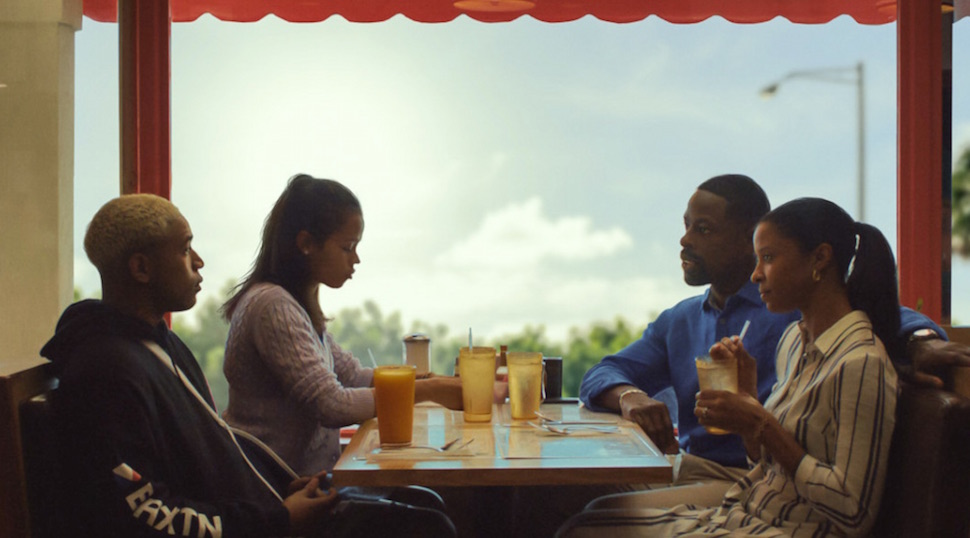Trey Edward Shults’ Waves (which just had its Toronto International Film Festival debut) is both fascinating and frustrating (and, often, brilliant). This is a film that has such a strong first act, but then a head-scratcher of a second that left me activity disliking what I was watching in front of me, then an almost out-of-the-blue third act that ultimately won me back over. Waves is already starting to feel like it’s going to be crowned 2019’s Most Polarizing Movie Of The Year.
About halfway through the first act of Waves, I already had my dumb “reaction tweet” being formed in my head: something like, “Move over, Vision Quest, there’s a new high school wrestling movie in town.” In retrospect it now feels crazy that the first act of Waves is a pretty straightforward and pretty interesting story about a star Florida high school wrestler named Tyler (Kelvin Harrison Jr.) who has The Big Meet coming up, but also a pretty gnarly shoulder injury that he’s told is not going to get better. But it’s The Big Meet, so Tyler decides to play through the pain in an effort to not disappoint his overbearing, intense, but loving father (Sterling K. Brown). Yes, there’s some Vision Quest in here, but instead of recklessly losing weight, Tyler is recklessly popping pain pills in an effort to just make it through the season.
Waves then goes in a pretty frustrating direction. Yes, I’m overusing the word “frustrating,” but there’s no better way to describe it. After that first act I was “in.” I was ready for this ride. I was hooked. But both Tyler and the film itself get pretty sloppy. Tyler has a series of “bad events” happen to him that culminates in an act (I won’t spoil it here) that happens so quickly – and so brazenly out of character up to that point – that honestly I half-expected a title card to come up on screen that said, “Presented by SADD, you booze you lose” and only then realize I’d been watching a scared straight video this entire time. Everything up to that moment had been so meticulously laid out I felt a bit betrayed.
After the “bad event,” it’s not as much that the film pulls the rug out from under the viewer as much as, a new, better rug is put there in its place. The film then completely detours its focus onto a new main character – Tyler’s sister, Emily (Taylor Russell) – as she has to pick up her life and live with the consequences of something she didn’t even do. Eventually Emily starts spending more and more time with Luke – Lucas Hedges in full chucklehead mode; handing out lollipops and cracking jokes – and for the life of me I can’t decide if I really like Luke, or if having this chucklehead around is just an antidote for what we had seen earlier in the movie.
Yes, yes, in the end this movie “got me.” By the end I was a blubbering idiot, but only because the movie detours into a last minute dying parent subplot and, frankly, I still don’t do very well with those. It’s weird to walk out of a movie so emotional and still feel, I don’t know … frustrated. (There it is again.)
Look, Waves displays some brilliant filmmaking. It’s beautiful to look at. The camerawork is intense – bordering on too intense at times – but I appreciate what was being done here. Again, it’s a fascinating movie. I haven’t stopped thinking about it since I saw it, and in a world of more and more disposable media, this is becoming a rare virtue. I wish I could sit with Waves for a few weeks before writing about it, because I suspect in a couple of months I’ll look back at all I just wrote and have a completely different feel for it all. But, alas, I’m not sent up here to Toronto to sit on a dock with my feeling for two months before I start working. But, right now, it feels like the framing was all set up for something special, but it has a prominent flaw right in the middle – this big glaring glob on an otherwise pristine canvas. But, in the end, I’m still fascinated why that glob is there.
You can contact Mike Ryan directly on Twitter.







